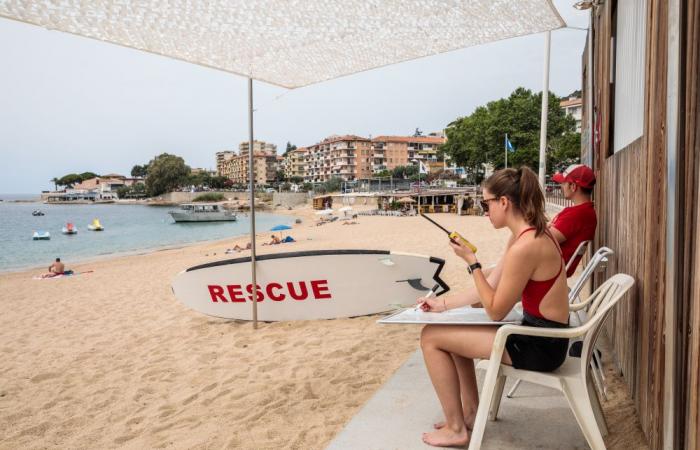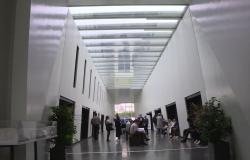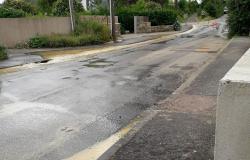At the top of the mast, the green flag flies for the first time this season. This Monday, July 1st in the morning, the beach lifeguards have taken up residence on the Ajaccio sands and drawn up a list of the necessary equipment. Almost nothing is missing, except for about ten lifeguards.…
“We are short of staff, there is clearly a lack of interest in the role since the Covid crisisdeplores the sports director of the City of Ajaccio, Marc Leca. But it’s noble, well paida task that normally attracts students. Many residents would like to extend this period of surveillance, but we are constrained by the need for personnel, which we can no longer find. We are not closing for financial reasons, but because we are having difficulty opening.”
Seven first aid stations
In total, the municipality deploys 26 agents at the beginning of July out of the 34 required to optimal operation. Surveillance begins at 11 a.m. and ends at 6 p.m., except on the two beaches of Capo di Feno where the times have been shifted by one hour. “Users have pointed out to us that the attendance is mainly in the afternoon and for longer periods there”specifies the sports director.
Seven positions are spread over the 32 kilometers of coastline to be monitored, with different challenges. Two to Capo, “these are beaches facing due west, more subject to currents. They are equipped with a water scooter, more suited to this side where the sea is particularly dangerous.” Four on the city beaches – Saint-François, Trottel, Marinella and Terre Sacrée – where the risk is lower given the impact of the winds, and one last to Ricantoa very busy area.
“It’s a beach that is complicated because it is relatively long, with two different behaviors, points out François Petit, co-head of the Ricanto post. On the right it is more protected, while on the left you can quickly have big waves. There are people who get surprised.”
A lot of disrespect
The public is also very eclectic from one end of this long strip of sand to the other. There are regulars and others who do not always understand the role of the agents. “We are asked if we rent deckchairs or parasols. Sometimes they ask if we give swimming lessons,” adds François Petit.
Beyond jellyfish or weever fish stings, the main interventions concern elderly people who are over-confident or families with children left unsupervised. “There is a big prevention jobthe risk comes from the sea. Kites, winds, scooters, etc. There are a lot of disrespect for maritime regulations.” For Marie, who will be watching the beach for the first time, “It is important to give meaning to what we say, to explain things. I am not apprehensive because I am surrounded by professionals but I do not go there empty-handed, I am aware that it is a big responsibility.”
Surveillance also extends to the sand, mainly against incivility. Dogs are banned, beaches are non-smoking, and trash doesn’t disappear when you hide it under the sand.






